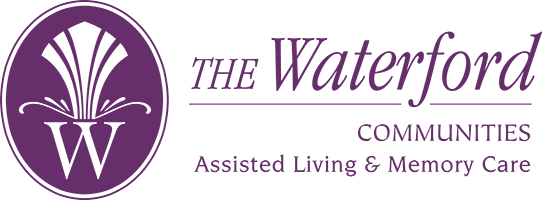Senior Care Glossary
A B C D E F G H I J K L M N O P Q R S T U V W X Y Z
A
ADLS – Activities of Daily Living
Refers to day-to- day activities such as bathing, eating, grooming, dressing, toileting, administering medication, moving around and many other self-care or maintenance tasks associated with daily living.
Alzheimer’s Disease
A progressive, neurodegenerative disease characterized by loss of function and death of nerve cells in several areas of the brain, leading to loss of mental functions such as memory and learning. Alzheimer’s disease is the most common cause of dementia.
- Alzheimers.net
- Alzheimer’s Association
- Alzheimer’s Care
- Alzheimer’s Disease
- Alzheimer’s Warning Signs
- Living with Alzheimer’s
Assisted Living
An assisted living facility is a senior living option for those with minimal needs for assistance with daily living and care. Its purpose is to help adults live independently in a safe environment.
B
C
D
Day Services
Day services are short term stays that do not include an overnight stay. This is commonly used when an elderly loved one is not safe to be left at home, and gives the caregiver the opportunity to attend everyday activities or go to appointments.
Dementia
The severe loss of intellectual functions, such as thinking, remembering and reasoning. Dementia is not a disease itself but a group of symptoms that may accompany certain diseases or conditions. Symptoms may include changes in personality, mood and behavior. Dementia is irreversible when caused by disease or injury, but may be reversible when caused by drugs, alcohol, depression or hormone and vitamin imbalances.
- Alz.org: Dementia
- Art Therapy for Dementia
- Dementia Care
- Dementia Cost
- Dementia Information
- Dementia Stages
- Dementia Treatment
- WebMD: Dementia
- Wikipedia: Dementia
E
Exit Seeking and Wandering
At some point during the course of their disease, people with dementia may wander or try to leave their home without a companion, a behavior often called exit-seeking.
F
G
H
Hospice Care
Is a specialized care designed to provide support to you and your loved ones during an advanced illness. Hospice care focuses on comfort and quality of life, rather than cure. The goal of hospice care is to enable you to have an alert, pain-free life … to live each day as fully as possible.
I
Independent Living
Is when an elderly person still has the physical and mental capacity to live independently but wants companionship from others his/her age. Independent living offer specific services and amenities that cater to senior citizens and promote active, healthy senior lifestyles for the golden years. Independent living is not an option for someone who cannot care for him/herself.
J
K
L
Living Will
A written, legal document that states the wishes of an individual regarding life saving devices and procedures in the event of a terminal illness or injury and is no longer competent and able to make decisions on their own.
Long Term Care
Long term care refers to a continuum of medical and social services de-signed to support the needs of people living with chronic health problems that affect their ability to perform everyday activities. Long term care can be assisted living, skilled nursing, rehabilitation and memory care
M
Medicare
Medicare is the federal health insurance program for people who are 65 or older, and certain younger people with disabilities. Does not directly cover assisted living apartment fees or levels of care services.
Medicaid Waiver
Medicaid waiver is a program that allows individuals who meet certain income and medical assistance criteria to receive care outside of a skilled facility.
Memory Care
Memory care is a distinct form of long-term care designed to meet the specific needs of a person with Alzheimer’s disease, dementia or other types of memory problems.
N
Nursing Home
Facility licensed by the state that provides 24-hour nursing care, room and board, and activities for convalescent residents and those with chronic and/or long-term care illnesses. This is one step below hospital acute care. Regular medical supervision and rehabilitation therapy are mandated to be available, and nursing homes are eligible to participate in the Medicaid program. It may be referred to as Nursing Facility, Convalescent Home or Skilled Nursing Facility.
O
Occupational Therapy
A creative activity prescribed for its effect in promoting recovery or rehabilitation. This is done to help individuals relearn activities of daily living and is generally administered by a licensed therapist.
P
Palliative Care
An area of health care that focuses on providing pain relief and preventing chronic suffering for patients. The goal of palliative care is to improve the quality of life in all areas of a patient’s life including physical, emotional, spiritual and social concerns that arise with advanced illness.
Physical Therapy
The treatment of disease or injury, by physical and mechanical means (as massage, regulated exercise, water, light, heat, and electricity.) Physical therapists plan and administer prescribed physical therapy treatment programs for residents to help restore their function and strength.
Q
R
Respite Care
Respite care typically refers to a short-term stay at a senior community, usually an assisted living or memory care community.
S
Skilled Nursing Care
Skilled nursing care is a high level of medical care that must be provided by trained individuals, such as RN’s and physical, speech, and occupational therapists. These services can be necessary over the short term for rehabilitation from an illness or injury, or they may be required over the long term for patients who need care on a frequent or around-the-clock basis due to a chronic medical condition.
T
U
V
Veteran’s Aid & Attendance (VA Benefits)
A supplemental income provided by the Department of Veteran’s Affairs available to veterans and their spouses. The veteran must have served at least one day during wartime. Resources: Guide to Using VA Benefits for Assisted Living | VA.gov
W
X
Y
Z

